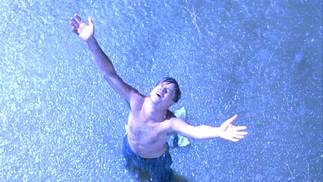 In the first three parts of this series on writing and editing your script for cinema or TV, I focused on your seed image, the premise and the outline treatment. Now it's time to write the first draft. There are three important skills you need to conquer to be an effective first draft screenwriter. There's Technique, such as how to structure and how to write dialogue. This is the area covered by most of the books and workshops. Then there is Strategy. Knowing when and where to use those techniques. And finally there's your Mental Game. This is where you deal with your demons and get the work done. First draft writing is mostly about the Mental Game. The problem with most writers when they try to write their first draft is they start inventing rules that don't exist. Three Rules There only three rules for writing a first draft of anything. It must: 1. Start 2. Continue 3. Finish That's it. If you do those three things, if you've started - continued - finished - then you've successfully written a good first draft. Note that it doesn't need to be a fixed number of pages. It doesn't need to have three act structure or be laid out correctly or all those things you learn in Technique. That's what Second drafts are for. Bad is good The one thing you must not try to do with a first draft is to try to make it "good". Because you have two different parts to your brain - the creative brain and the critical brain. Both are essential but you simply can't use both at the same time. If you try to judge your work while you write it, you'll tie yourself in self-conscious knots. This is the best way to get writers' block. I've written scenes I thought were brilliant at the time and which turned out to be rubbish when I read through the following day. And I've written scenes I was sure were rubbish, and which remained unchanged all the way to the final draft. So, to write your first draft, just sit down and put some words on the page. Fast. Stephen King says he writes his first drafts "just fast enough that his fears can't catch up with him." You may indeed write rubbish - but that's OK. Nobody else need ever see it. If you try to make the draft "good" it will die on the page. Only if you give yourself permission to write badly will you discover a magic you can never find any other way. Of course you won't know it at the time. Trust your mental game You have to trust it's there - and you'll find it next time - when you start to edit. That's when you start to take the mess you've created and make it work. And that's for the future. Next: How to read a draft
0 Comments
|
BLOGTHE ONLY PLACE TO TALK ABOUT THE CRAFT OF SCRIPTWRITING.
|
Privacy Policy © Euroscript Limited 2020

 RSS Feed
RSS Feed


